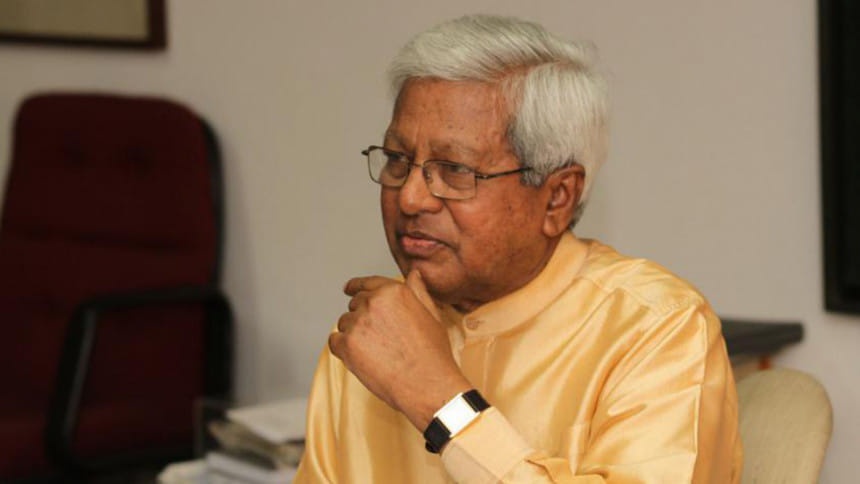Fazle Hasan Abed wins World Food Prize

A man who created a nonprofit organization credited with helping more than 150 million people out of poverty was named the winner of the 2015 World Food Prize on Wednesday.
Fazle Hasan Abed, who created BRAC, the organisation originally known as Bangladesh Rural Advancement Committee, as a temporary relief organisation to help the country recover from the 1970 typhoon that killed about 500,000 people and the subsequent war fought in 1971 to win independence from Pakistan. Bangladesh was once listed as the second poorest country in the world.
Brac has grown into one of the world's largest nongovernmental organisations focused on alleviating poverty — estimated to have helped more than 150 million people out of poverty in Africa and Asia and is expanding efforts to 10 additional countries.
"Poverty is a multidimensional thing. It's not just lack of income or lack of employment, it's also lack of opportunity, lack of education, lack of opportunity for health care and so on," Abed, 79, told The Associated Press in a telephone interview from Bangladesh.
Agriculture Secretary Tom Vilsack announced the prize on Wednesday at the State Department in Washington.
The World Food Prize was created by Nobel laureate Norman Borlaug in 1986 to recognize scientists and others who have improved the quality and availability of food. The foundation that awards the $250,000 prize is based in Des Moines, Iowa.
World Food Prize President Kenneth Quinn said the ability of Abed, who was knighted in London in February 2010, to successfully transition Brac it into a global relief organisation was the key to his win.
"What distinguishes him is the incredibly difficult environment in which he has built now the largest, and some would say, the most effective and far reaching nonprofit organisation anywhere in the world with more than 100,000 employees," Quinn said. "It's his emphasis on reaching to the very poor those who have great food insecurity and who face the most difficult path out of poverty."
The initial focus of Brac, Abed told the AP, was on alleviating high child and infant mortality rates by providing social services including health care. He also saw the need to empower women and get them to see they could also contribute to the national economy, so he helped teach them to farm efficiently and grow surplus crops to sell.
"Sir Fazle's and his organization's recognition that engaging women in STEAM fields — science, technology, engineering, agriculture, and math — benefits our local and global communities is a vision that we share at USDA," Vilsack said.
Brac estimates more than a billion people live at a poverty level of less than $1.25 a day but hundreds of millions of others live on less than half that amount and are considered in extreme poverty.
The organisation also has created a pilot program that helps those in extreme poverty work their way out; it'll be used in eight other countries to see if results can be replicated. Participants in receive a weekly stipend so they have enough money to eliminate the need to beg or work at menial labor to survive. A savings account and financial literacy training helps teach them to manage money, and a one-time grant provides a productive asset — such as a cow, goats or chickens — as a means to work toward self-sufficiency.
"In many countries, poor people are not seen as a solution to the problem but the problem. Poor people can be organised and become the solution to the poverty themselves," he said. "All we need to do is provide them opportunities and conditions and give them the tools.
"The hard work is done by the poor themselves to defeat poverty."
The United Nations Development Program reports Bangladesh has reduced poverty from 56.7 percent in 1991-1992 to 31.5 percent in 2010, the latest year data is available.
Abed will be awarded the World Food Prize at a ceremony in October in Des Moines.

 For all latest news, follow The Daily Star's Google News channel.
For all latest news, follow The Daily Star's Google News channel. 



Comments